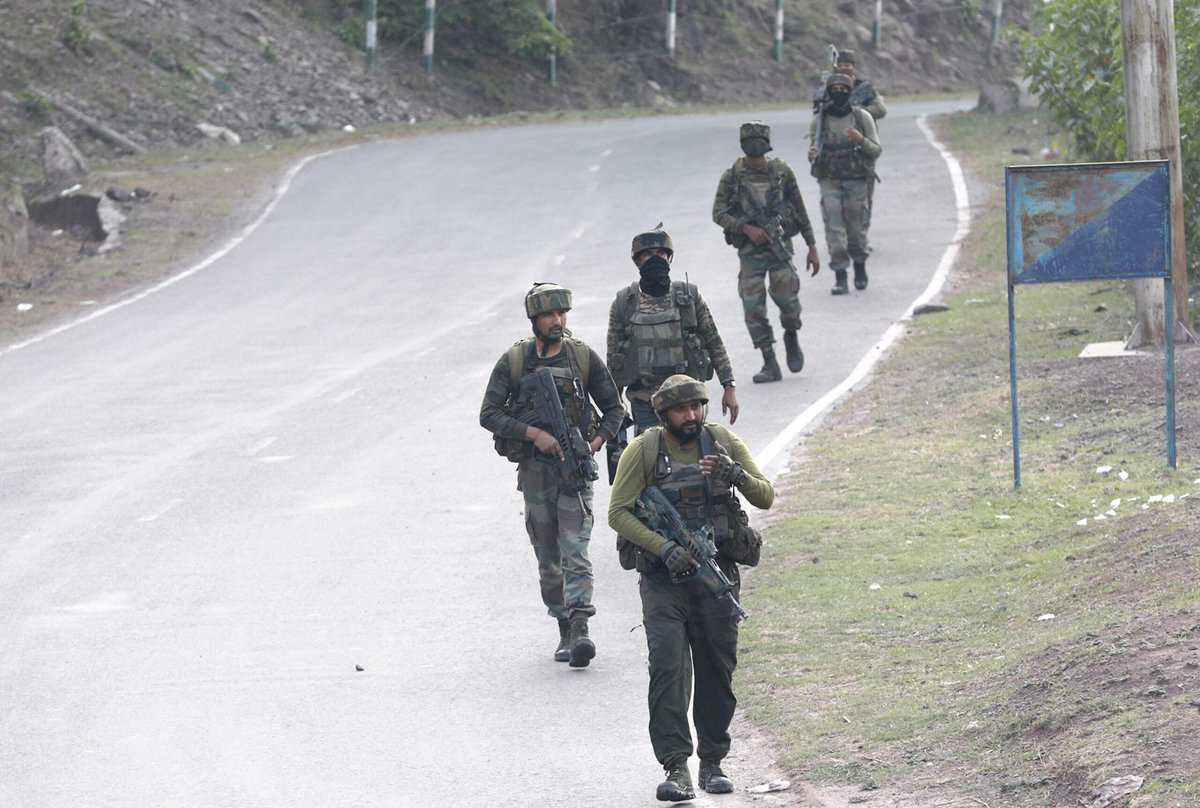
In the past one month beginning with the June 9 attack on a pilgrims’ bus in Reasi district of Jammu and Kashmir, there have been several such attacks, but mostly on the security forces. On July 8, when Prime Minister Narendra Modi began his two-day visit to Russia, terrorists struck hard in the Machhedi area of Kathua district, ambushed an army vehicle, leaving one Junior Commissioned Officer and four others dead, and five others critically wounded.
This particular attack evoked condemnation from President Druopadi Murmu down to J&K UT’s Lieutenant Governor Manoj Sinha, and all of them vowed to bring the perpetrators of the terror attack to justice. They declared that punishment would visit the terrorists soon. So much so, the Kathua terror attack also found a mention in the joint statement after the Indo-Russia summit on Tuesday. Russian President Vladimir Putin and Indian Prime Minister Modi condemned the attack and reflected on the dangers of cross-border terrorism.
Kathua terror attack and the terror assaults preceding it in the past one month beginning with June 9 coinciding with the day when Modi 3.0 took over the reigns of the country after the June 4 election results. The terrorists had struck in Reasi, a mountainous district that also houses one of the most revered Hindu shrines of Vaishno Devi on the day, sending a clear signal that they were present and had capacity to strike anywhere.
Within the next 48 hours, three more attacks took place, one close to the international border in the Hiranagar area of Kathua district, and two in Doda district. These attacks prompted the Prime Minister to convene a meeting to review J&K’s security situation and he directed that all out efforts be made to crush terrorism. Thereafter Home Minister Amit Shah held two back-to-back meetings, taking everything into account before asking the security forces to launch a full spectrum assault on terrorism in J&K.
For the Modi government, the reappearance of terrorism particularly in Jammu region of Jammu and Kashmir is a troubling factor as it casts a dark shadow over its narrative that J&K is largely peaceful. The government had been claiming that terrorists have lost the capacity and will to launch gun and bomb attacks in Jammu and Kashmir after serial measures to eliminate terrorists and the ecosystem that sustained them. The leadership counted millions of tourists visiting the Union Territory, especially the Kashmir Valley as irrefutable evidence of the situation having undergone a transformation from hotspot of terrorism to the hot spot of tourism. These are claims. Life in the Valley has walked several miles past its troubled times when marriages and funerals were also under attack, and now the situation offers a fear-free life. But these attacks in the Jammu region have also raised a set of questions as to what went wrong and where. This has posed a definite challenge to the specter of 360-degree peace in J&K. This will force the government as the street protests calling for stringent action against terrorists and their masters across the border in Pakistan have taken hold of the new narrative of elimination of terrorism. The political opponents have also laid bare the facts that the security forces were coming under attack time and again.
The Modi government knows single-laser counter-terrorism – to use military force against terrorists. It is valid too as the terrorists who speak the language of terror through guns and bombs don’t deserve anything less than that. Their elimination conveys a strong message to the would-be-terrorists and their sympathizers amidst the polity. The guns are the only answer to neutralize the terrorists and the narrative of challenge to the state they pose by their actions.
Pakistan which has been sponsoring terrorism in J&K for the past over three decades should know that such acts of terror on the Indian soil, especially in Jammu and Kashmir, will not go unpunished. India will be forced to launch an aggressive diplomatic campaign against the cross-border terrorism emanating from the neighbouring country. At a time when Pakistan is trying to convince the world powers that there is a need to cross the border into Afghanistan to destroy bases of the terror group Tehreek-e-Taliban Pakistan or TTP, the group it blames for a series of terror attacks on the Pakistani army and vital installations, particularly assets that China has built as part of China-Pakistan Economic Corridor, it has no defence for its own acts of cross-border terror into India.
Next few days would be very crucial in determining the course that counterterrorism operations will take in J&K, and how far will these steps go in restoring the sanctity of internal security and hurting Pakistan



